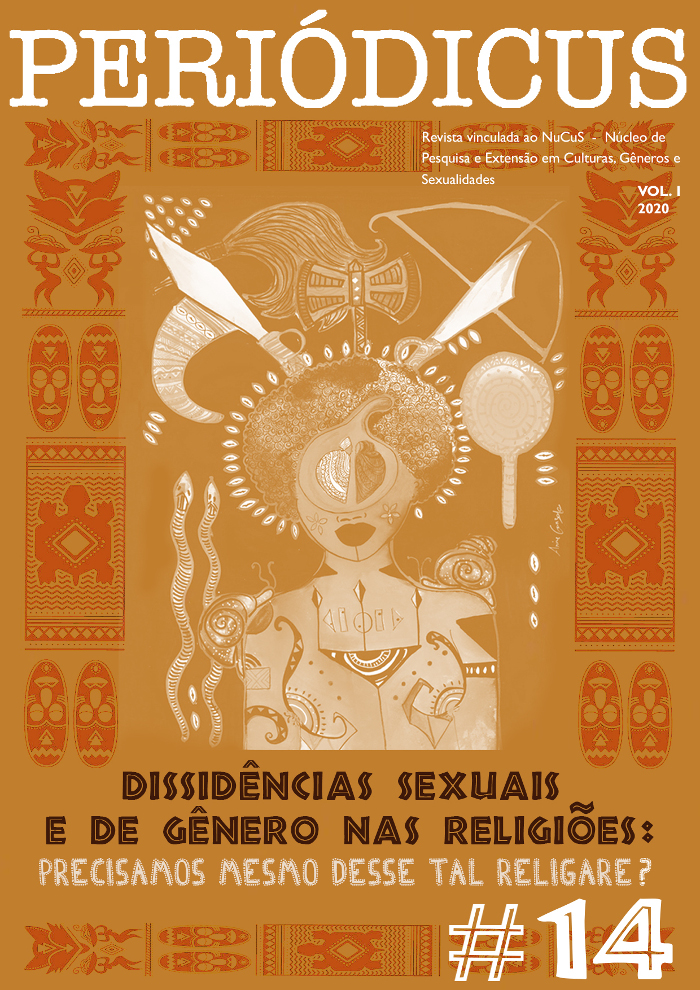Femininities and transgressions in a revolving body: a post-structuralist analysis of scientific production about Pombagira
DOI:
https://doi.org/10.9771/peri.v1i14.36523Abstract
This article results from a bibliography search conducted to analyze correlations presented at the discourse level, drawing from ethnographic studies and anthropological productions, including Pombagira, prostitution and the different forms of femininity in Umbanda. The first section of the article discusses the relation between the entity and the stereotype of the prostitute, identifications and the role that Pombagira plays in the life of women who are sex workers. The second section of the article addresses the image of the transgressive, independent woman who does not submit to men, as such image is tied to the entity, discussing how the entity confronts gender inequalities and their counter-sexual experiments, especially by means of her LGBT ‘children’. The third and last section deals with the discursive approximation between Pombagira and Exu, touching their ambiguities which blur gendered binarities. Lastly, it is considered indispensable that analyses about the entity Pombagira pay attention to countless possibilities of a duty towards minorities, thus avoiding epistemological and cisnormative suicides.Downloads
Downloads
Published
How to Cite
Issue
Section
License
Copyright (c) 2021 Daniella Chagas Mesquita, Esmael Alves de Oliveira

This work is licensed under a Creative Commons Attribution-NonCommercial 4.0 International License.
Autores que publicam nesta revista concordam com os seguintes termos:
Autores mantêm os direitos autorais e concedem à revista o direito de primeira publicação, com o trabalho simultaneamente licenciado sob Licença Creative Commons Attribution Noncommercial que permite o compartilhamento do trabalho com reconhecimento da autoria e publicação inicial nesta revista, sendo vedado o uso com fins comerciais.
Autores têm autorização para assumir contratos adicionais separadamente, para distribuição não-exclusiva da versão do trabalho publicada nesta revista (ex.: publicar em repositório institucional ou como capítulo de livro), com reconhecimento de autoria e publicação inicial nesta revista.
Autores têm permissão e são estimulados a publicar e distribuir seu trabalho online (ex.: em repositórios institucionais ou na sua página pessoal) a qualquer ponto antes ou durante o processo editorial, já que isso pode gerar alterações produtivas, bem como aumentar o impacto e a citação do trabalho publicado (Veja O Efeito do Acesso Livre).







